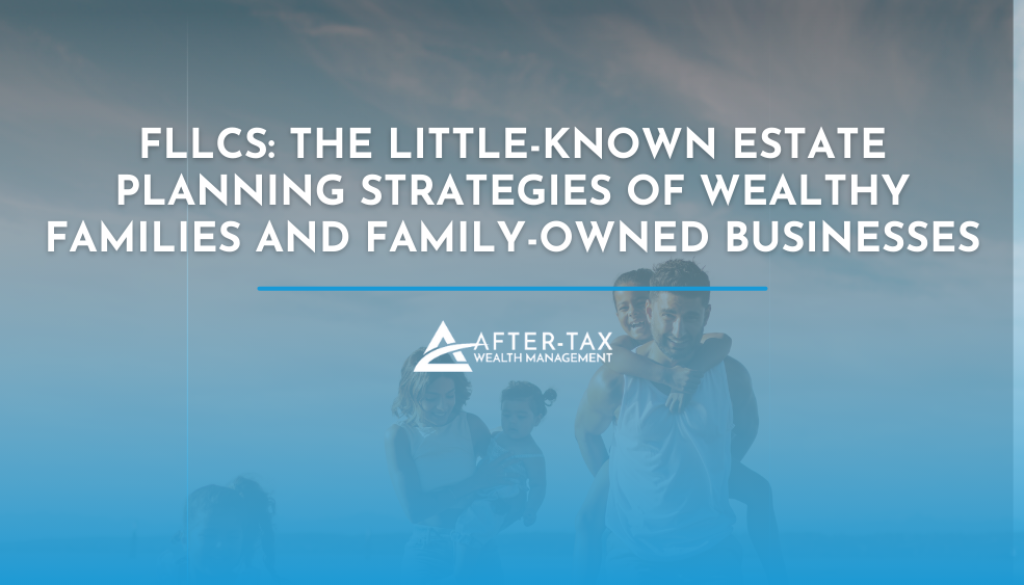FLLCs: The Little-Known Estate Planning Strategies of Wealthy Families and Family-Owned Businesses
Estate planning can be daunting for many families, especially those with significant wealth and assets. However, a strategy such as a Family Limited Liability Company (FLLC) may help ease concerns while offering various benefits for estate planning and asset preservation. This article provides information for families to determine whether an FLLC is a suitable estate planning strategy for themselves and their businesses.
What is an FLLC?
First, it’s essential to understand what a FLLC is; it is a business entity that combines the features of a corporation, partnership, and limited liability company (LLC). It is a legal structure where family or business members jointly own and manage assets. The “family” connection becomes relevant when the original owners, who are usually related, determine that they want to give away their interests in the company to their heirs and ensure it stays in the family. While the members of the FLLC are typically family members, such as parents, children, and grandchildren, it can also include non-family members if desired.
The key feature of an FLLC is its limited liability preservation, meaning that each member’s assets are shielded from any business liabilities. It’s important to note that the IRS does not recognize an LLC of family members as a legal entity different from any other LLC; a family LLC is subject to the same rules and regulations as a non-family LLC.
Families must understand how an FLLC, corporation, and partnership differ to determine if an FLLC is appropriate for their situation.
FLLC vs. a corporation
An FLLC provides liability protection for members just like a corporation does. Therefore, members’ assets are protected outside the FLLC. Its members own an FLLC, typically members of the same family. This distinction allows for more control over the company’s management and aligns with keeping the business within the family.
Management
A corporation is owned by shareholders who appoint a board of directors to make significant decisions on behalf of the company. The board of directors typically does not work daily for the company but hires management roles to run the company at their direction.
Taxation differences
FLLC profits are taxed once, whereas, in a corporation, profits are taxed twice: First at the corporate level and then again on the individual level when distributed to shareholders as dividends.
FLLC vs. a partnership
An FLLC is a legal entity comprising members, often family members. A partnership is a business owned and operated by two or more individuals who share profits and losses equally.
One of the main differences between these two structures is liability preservation. In an FLLC, the members’ assets are preserved from the business’s liabilities. In a partnership, all partners are personally liable for the debts and obligations of the company, so the partners’ assets can be at risk.
Management
Regarding management, partnerships are typically run by all partners equally, with each having an equal say in decision-making. In contrast, an FLLC can have a designated manager who handles the day-to-day operations while the members act as passive investors. This manager feature can be advantageous for family businesses, where some members may be more involved than others.
Taxation differences
It’s important to note that an FLLC can be taxed as a partnership, corporation, or even a sole proprietorship, depending on the number of members and their roles in the business. This flexibility allows for potential tax savings and easier management of taxes.
Using an FLLC as a tax-saving strategy can result in significant tax savings, especially for high-net-worth individuals subject to higher tax rates. The FLLC can also act as a tax shelter for assets, allowing owners to decrease their taxable estate through gifting and other estate planning strategies.
FLLCs and Estate Planning
One of the main benefits of establishing an FLLC is its ability to facilitate estate planning. Since the company is owned and managed by family members, the FLLC allows for easy transfer of assets within the family without complicated legal procedures. An FLLC can be especially helpful for families with complex assets, such as real estate or investments, which may be challenging to transfer through traditional estate planning methods. By gifting shares of the FLLC to family members, the owners can effectively transfer their wealth while retaining control over the assets.
Protection from creditors
Another advantage of the FLLC is its ability to preserve family assets from potential creditors. By establishing an FLLC, each member’s assets are shielded from any business liabilities, making it an effective tool for asset preservation. This protection can be particularly beneficial for families with high-risk businesses or those who want to preserve their assets for future generations. It is essential to note that the FLLC must be set up and maintained correctly to ensure its effectiveness in safeguarding assets.
Establishing an FLLC requires careful consideration and should not be taken lightly. It is crucial to seek advice from financial, legal, tax, and professionals before setting up an FLLC to understand its implications fully. In addition, since a FLLC is considered a business entity by the IRS, record-keeping and compliance must be maintained to avoid legal or tax complications.
In conclusion, a Family Limited Liability Company can be a highly effective and strategic estate planning tool for wealthy families and businesses seeking to transfer wealth, mitigate taxes, and preserve assets for future generations. With careful planning and execution, an FLLC can offer a comprehensive and suitable estate planning and asset preservation strategy for wealthy families and businesses.
Sources:
https://www.investopedia.com/ask/answers/062915/what-family-limited-liability-company-llc.asp
https://www.nolo.com/legal-encyclopedia/forming-a-family-limited-liability-company.html
Important Disclosures
This material was created for educational and informational purposes only and is not intended as tax or legal advice. If you are seeking tax or legal advice specific to your needs, such advice services must be obtained on your own separate from this educational material.
This article was prepared by Fresh Finance.
LPL Tracking #558041




